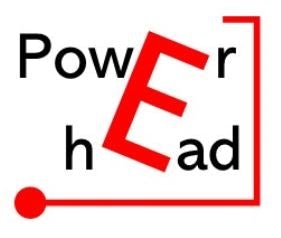Powerhead
Empowering Higher Education in Adopting Digital Learning

Outcomes

Digital learning in higher education is a much debated topic these days. It is important that all partners involved agree on the definition of ‘digital learning in higher education’ and that the project makes an inventory of the (background) insights that are available in the field. Digitally enhanced learning and teaching is any type of learning or teaching that is accompanied or supported by technology. The definition is addressed in this first part of the project.
A Flemish working group with inclusion of stakeholders in higher education has prepared a background paper on digital learning in higher education. This builds upon previous work of the Flemish Education Council and international publications and insights.
This paper has been discussed by the transnational steering group, including representatives from the Latvian project partners as well as international experts:
The result of this meeting was a final background paper on digital learning in higher education.

Since higher education institutions are the primary partners for implementing digital learning, it is important to have an overview of their needs: what kind of support do they need so that digital learning can be stimulated? What do they expect from their government and other stakeholders? The objective of this work package was to make an inventory of the needs of higher education institutions in order to develop a thought out policy on digital learning in higher education.
Every country of the consortium has organized focus groups, with participation of a wide variety of stakeholders in higher education (higher education educators and educational support staff, heads and directors in higher education institutions, government and policy advisors, students, employers and social partners, …). This has led to a:
Since this project draws on the different expertise of the participating countries in this matter, the needs of higher education institutions in the participating countries have been compared, looking for a common perspective. Both reports have been discussed during a second transnational steering group meeting, leading to a ‘common needs analysis’: a report with an overview of the needs of higher education institutions in the participating countries.

Since we learned from the Bologna Implementation Report (2018) that different Bologna partner countries are on different stages of the implementation of digital learning in higher education, it is interesting to see if the results of the project so far, are recognisable for other Bologna countries.
During a Peer Learning Activity, the needs analysis has been shared and confronted with the input from international peers from other EHEA-countries, experts and representatives of the ministries (Ukraine, Hungary, Ireland, Greece, Germany, the Netherlands), enriched by a keynote by the European Commission and by ESU (European Student Union).

The information of the needs analysis and the PLA is processed. National working groups in the participating countries will put all information together, and discuss what guidelines or recommendations can be assembled for national authorities and higher education institutions.
The transnational steering group will agree on common guidelines.

The guidelines can be used by other countries, so it is important that these countries have knowledge of them. The guidelines can be used by different countries in different ways, e.g. to inspire a specific strategy on digital learning or to be incorporated in a national strategy for higher education or to use as a checklist for higher education institutions.
The project ends with a dissemination conference, and the project team members participate in international fora. The results of the project are put on permanent display e.g. in the Flemish Education Council or the different ministries. The final dissemination conference took place in Brussels on 17 October 2022.
